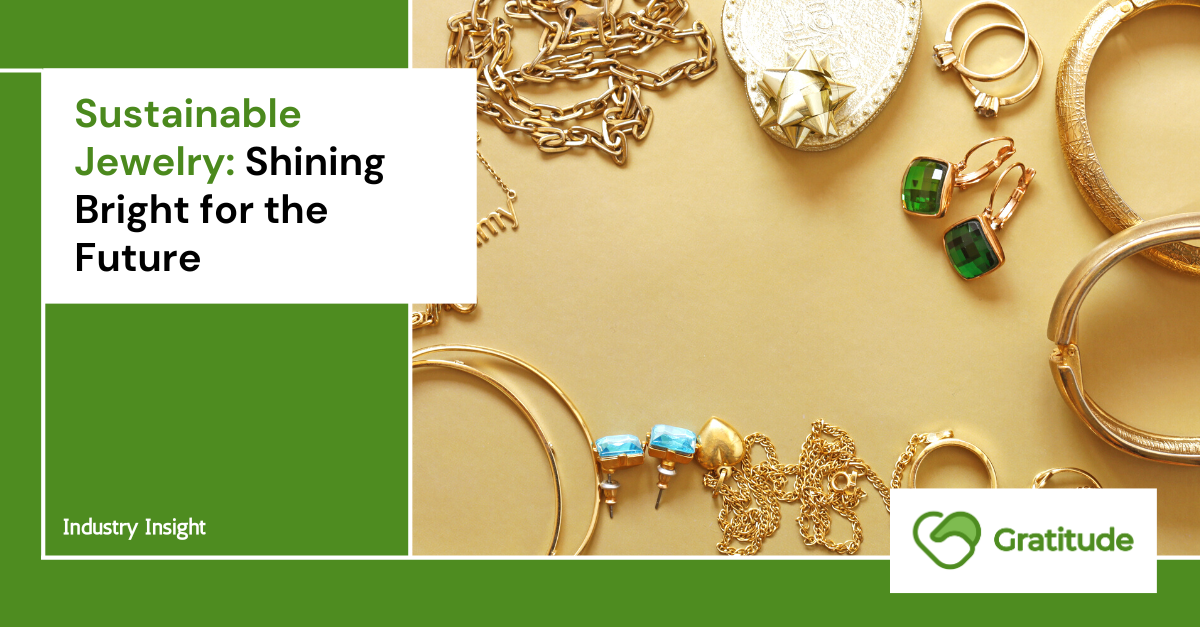Jewelry has always been a symbol of beauty, wealth, and power. From the opulent courts of ancient civilizations to modern red carpets, jewels have adorned humans throughout history. But just as fashion and textiles have been scrutinized for their environmental and ethical impact, the jewelry industry is being re-evaluated through the lens of sustainability.
What is Sustainable Jewelry?
Sustainable jewelry refers to pieces that are crafted with minimal negative environmental, social, and economic impacts. This includes the use of ethically sourced materials, responsible mining, recycling and upcycling practices, and fair labor standards.
Key Components of Sustainable Jewelry:
- Ethically Sourced Gems and Metals: This involves ensuring that mining does not exploit workers, disrupt local ecosystems, or finance conflicts (often termed ‘blood diamonds’). Many companies now offer conflict-free diamonds and source gems from mines with reputable labor practices.
- Recycled Materials: Instead of mining new materials, some jewelers use recycled precious metals or gemstones, reducing the demand for fresh mining.
- Artisan and Handmade: By supporting local artisans, we can ensure that jewelry is made in conditions where workers are treated fairly and paid a living wage.
Examples of Sustainable Jewelry Brands:
- Brilliant Earth: Renowned for its ethical sourcing, Brilliant Earth offers diamonds, gemstones, and metals that are environmentally responsible.
- PANDORA: As of 2021, PANDORA announced that it would no longer be using mined diamonds and would be switching to lab-grown diamonds, which have significantly less environmental impact.
- Melissa Joy Manning: This brand employs sustainable practices by using recycled materials and producing jewelry in a green-certified studio.
Why Sustainable Jewelry Matters
The World Diamond Council reported that around $8.4 billion worth of diamonds were mined in 2018. Large-scale mining can result in habitat destruction, soil erosion, and water pollution. In terms of gold mining, the World Gold Council indicates that roughly 3,531 tonnes of gold were mined globally in 2019. Gold mining has often been associated with the usage of toxic chemicals like mercury and cyanide, which can contaminate water supplies and harm local ecosystems.
Moreover, there’s a human cost. The Kimberley Process was established in 2003 to prevent “blood diamonds” from entering the mainstream market. These diamonds, mined in war zones, often finance armed conflict against governments.
Future of Sustainable Jewelry
With increasing awareness about the environmental and social implications of jewelry production, consumers are leaning more towards sustainable choices. Technological advancements, like lab-grown diamonds, offer an alternative to traditional mining. Platforms promoting artisan work give a voice and market to local jewelers from various global communities.
Another tech that enables jewelers to become more transparent on their supply chain regardless of their size is blockchain. Tools like Gratitude can do so. Gratitude enables businesses to become transparent by being powered by blockchain technology, with easy-to-use tools to record their supply chain, narrate the story, verify on blockchain and present the data in a beautiful landing page that can be issued via Gratitude’s QR Code or URL that can be placed on a physical product or embedded on digital marketing campaign or label, even in hotels. With this QR code, brands can put in place localized material or descriptions of their product so that the product can quickly hit the shelves while the full localization in progress. Customers can then simply scan the QR codes placed on the product or click the link on a digital campaign and clearly see the product’s journey, verify sustainability claims, or even company and brand stories that the company wants to reveal to the customer in language that they are familiar with.
Begin your business’ true transparency journey by implementing Gratitude to unlock the hidden value of your supply chain data. Talk to our representatives via the following channels for support or assistance in implementation:
Website : https://more-gratitude.com
Twitter : https://www.twitter.com/more_gratitude
Linkedin : https://www.linkedin.com/company/more-gratitude
Instagram : https://www.instagram.com/more_gratitude/
Facebook : https://www.facebook.com/followgratitude
Medium : https://www.medium.com/@more_gratitude
Sign up to our exclusive newsletter for special offers and latest industry insight :

